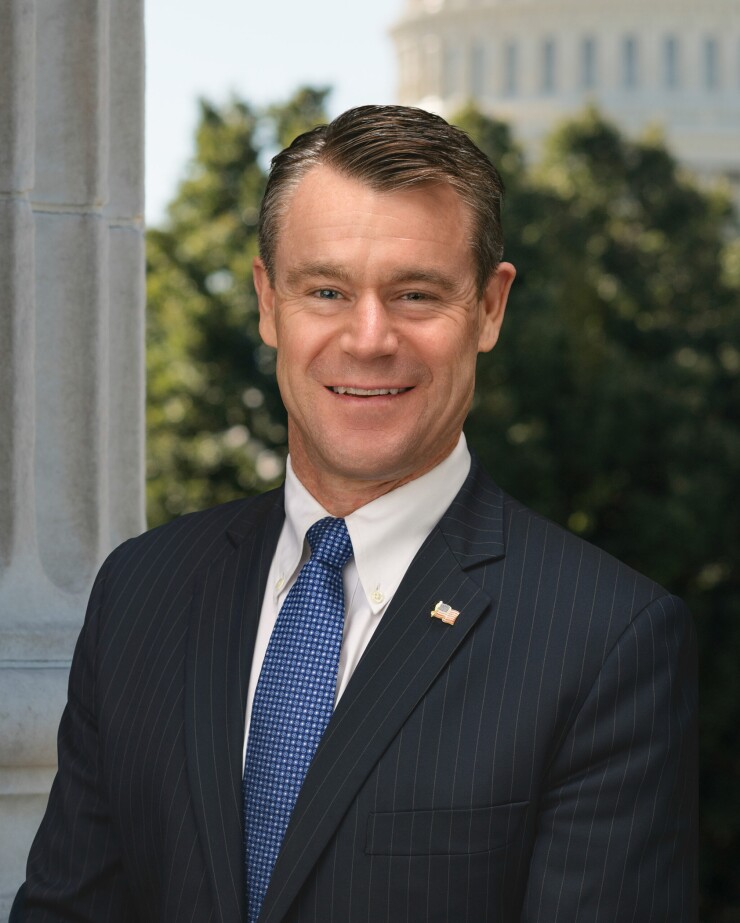
The effects of tariffs combined with emphasizing private sector investment in affordable housing is adding juice to the prospect of finally passing a bill that could boost private activity bond issuance.
"The Affordable Housing Credit Improvement Act will leverage private sector investment to increase the stock of affordable housing in both urban and rural communities," said Sen. Todd Young, R- Ind.
Young reintroduced the bill in the Senate on Tuesday along with Sens. Maria Cantwell D-Wash., Marsha Blackburn R-Tenn., and Ron Wyden D-Ore., who is the ranking Democrat on the Senate Finance Committee. There are also 30 other bipartisan cosponsors.
A
"Housing inflation is up 4% over the past year nationally and 4.5% in the Pacific Northwest and that was before homebuilders reported an additional 5.5% increase in costs due to tariffs," said Sen. Cantwell.
Variations of the legislation have been bouncing around in Congress since 2016.
The current version of the AHCIA would increase the number of low-income housing tax credits available to states by 50% for the next two years and make a temporary 12.5% increase secured in 2018 permanent.
LIHTCs are a key element in the typical capital stack used to develop and build affordable housing.
If an affordable housing community is 50% financed by private activity bonds it may quality for a 4% tax credit. The amount of PABS that can be issued each year is capped, which housing advocates would like to see adjusted or removed.
The bill calls for reducing the percentage needed to qualify for the credit from 50% to 25%, a move that advocates believe would boost efficiency in PAB usage and spur private investment in affordable housing development.
Approved projects would carry less debt, and more projects would be eligible to receive funding.
Tax-exempt PABs are currently at risk as Congress looks for ways to boost revenue to compensate for keeping all the provisions of the Tax Cuts and Jobs Act in place and pay for President Trump's campaign promises to cut taxes on tips and Social Security.
Housing initiatives and the bonds that support them remain a point of emphasis for ongoing lobbying efforts that are attracting bipartisan and bicameral support.
Congress watchers have broached the idea that AHCIA's major components, and pieces of the Neighborhood Homes Investment Act of 2025, which would establish federal credits for owner- occupied housing in distressed areas, could get
"It's time for Congress to meet the housing crisis with the bold solutions it demands and that starts with increasing housing supply," said Sen. Wyden.
"Our bill will deliver some much-needed relief to families by supporting existing, successful federal housing programs and building over one million new units of affordable housing."





